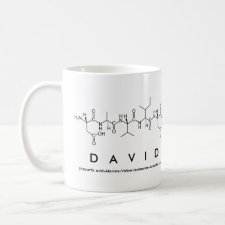
Authors: Fireman-Shoresh S, Avnir D, Marx S
Article Title: General method for chiral imprinting of sol-gel thin films exhibiting enantioselectivity.
Publication date: 2003
Journal: Chemistry of Materials
Volume: 15
Issue: (19)
Page numbers: 3607-3613.
DOI: 10.1021/cm0340734
Abstract: Chirally imprinted sol-gel thin films were fabricated through the molecular imprinting technique. The films were spin coated on glass plate substrates. Enantioselective discrimination of these films was observed toward three different templates. In each case a different enantiomer pair was selected as a template and a sol mixture was tailored accordingly. By extracting the template molecule a defined chiral cavity was created. The enantiomer pairs were (R)- and (S)-propranolol, (R)- and (S)-2,2,2-trifluoro-1-(9-anthryl) ethanol, and D- and L-3,4-dihydroxyphenylalanine (D- and L-dopa). Selective adsorption properties of the resulted films toward the imprinted molecules were measured by radioactive and fluorescence analysis. In all cases, preferred adsorption of one enantiomer was revealed. This preference was due to configuration match between the cavity and the adsorbed molecule. Nonspecific adsorption was remarkably low and was measured for reference nonimprinted films



Join the Society for Molecular Imprinting

New items RSS feed
Sign-up for e-mail updates:
Choose between receiving an occasional newsletter or more frequent e-mail alerts.
Click here to go to the sign-up page.
Is your name elemental or peptidic? Enter your name and find out by clicking either of the buttons below!
Other products you may like:
 MIPdatabase
MIPdatabase









